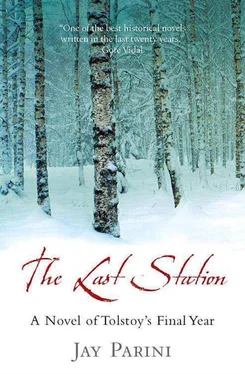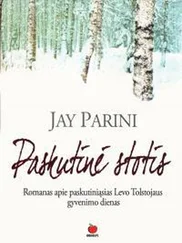The machine pleased everyone but Papa. I understood exactly why he crouched like that in the Voltaire chair, drawing himself inward like a turtle hiding within its shell.
My brother Andrey came from Moscow, looking dapper, grating on Papa as usual with his chatter about countess this and colonel that. He cares nothing for his father’s feelings and knows little of his ideas. ‘It’s wonderful, isn’t it?’ Andrey kept saying, fussing with the gramophone to make it talk louder and louder.
Papa said, ‘Like all foolish inventions of this so-called civilization, this machine will soon become a bore,’ and left the room.
The remark upset Sergeyenko, whose father had brought the gramophone and the record in the first place. But he knows Papa and his ways.
‘Your father is something of a Luddite, I fear,’ he said, scratching his beard.
Mama, bless her, immediately took Papa’s recording off the gramophone and put on a Glinka duet – also a gift from Sergeyenko. This brought Papa back into the room, smiling. He sat back in his chair, putting his hands on his knees and shutting his eyes. When the duet was finished, Mama put on another of the records we had been given: Ballinstin’s version of the serenade from Don Giovanni . Papa produced a wide smile that showed his pink, wet gums. ‘This is very nice,’ he said, patting his legs with both hands. ‘Very nice.’ Sergeyenko glowed.
An hour later we gathered for tea. Mama had invited Bulgakov to stay. He seemed to gape at everyone and blew his nose repeatedly on a dirty handkerchief. I can hardly stand him and cannot imagine what Chertkov saw in him. Papa’s last secretary, Gusev, was ever so much better, a sincere man who understood Papa’s ideas better than Papa does himself. Even Chertkov said so.
Andrey, like Mama a lover of discord, rambled on about patriotism, soon turning to the superiority of western Europe over Russia and questioning the proper relation of landowners to the muzhiks. Tanya’s husband, Sukhotin, grew excited and began to lecture about the price of land. When he finished his little address, Sergeyenko added that the Russian peasant has grown increasingly furious with landowners in the past decade, and rightly so. They deserve better treatment, he said, punctuating the air with a finger.
‘I have seen with my own eyes a whole village full of muzhiks thrashed by a small band of soldiers,’ Andrey replied, scanning the room to register the impact of his statement. ‘There must have been five hundred families on hand, but not one person objected. They’re sheep, the muzhiks. Nothing but sheep!’
Papa’s eyes became dark pools. His brow wrinkled, and he seemed on the point of speaking when he restrained himself, knowing that whatever he said would be taken the wrong way. It grieved me to see this.
‘The muzhiks drink too much,’ Mama said, salting the wound in Papa’s heart. ‘The army is worth only what the government is willing to spend for them on alcohol. I’ve seen this proven by statistics.’ She sipped her glass of tea and lifted a plump little cake from the silver tray. ‘It’s certainly not for lack of land that the Russian muzhik leads a life of poverty,’ she added. ‘Their poverty is spiritual. They have no willpower.’
Papa fastened his yellow knit jacket around his shoulders, as if a bitter wind had just blown through the house from the northern steppes. I saw by a flicker of his brow that he could no longer maintain a lofty silence.
Smoothing his beard with one hand, he leaned forward. ‘If the peasants had money, they would not surround themselves, as we do, with footmen costing ten rubles a month. We behave like idiots.’
‘No, dear, they would spend it all on drink and whores,’ said Mama.
Papa looked at her glumly.
‘You know, the Russian landowner finds himself in a filthy situation,’ Mama went on. ‘Do you think it’s impoverished landowners who treat themselves to all these modern gadgets, things like gramophones? Of course not. They’re bought by wealthy merchants living in the towns, by capitalists and plunderers!’ Mark Antony would not have addressed his troops less boldly.
‘What are you suggesting, dear?’ Papa asked. ‘That we are somehow less villainous than they because somebody gave us this gramophone as a gift?’
He laughed, and everyone laughed with him, perhaps a little nervously.
Meanwhile, Dr Makovitsky was scribbling everything Papa uttered on the tiny pad he keeps hidden beneath the table. You can tell when he is writing because his mouth twists and the lower lip protrudes queerly. I noticed that Valentin Bulgakov appeared quite agitated by what he saw. I don’t think he had ever heard my parents argue in public before, and it can be terribly upsetting if you’re not accustomed to it.
‘Dushan Petrovich!’ Papa said, shaking the doctor from his stenographic trance. ‘Bring me that letter from the revolutionary. The one I showed you a few days ago. I believe it’s still on my desk.’
Papa read aloud from it to everyone. It was a curious thing to do, given the letter. One part of it stays in my head and haunts me.
No, Leo Nikolayevich, I cannot agree with you that human relations are improved by love alone. Only those with an education and a full belly can talk like that and get away with it. What shall we say to a hungry man with children, the man who has staggered through life beneath the yoke of tyrants? He must fight them. He must liberate himself from bondage. Now, before your own death, I tell you, Leo Nikolayevich, that the world is thirsty for blood, that men will continue to fight and kill, not only their masters, but everyone, even their children, so that they shall not have to look forward to their evil as well. I am sorry that you will not live to see this with your own eyes and be convinced of your mistake. Nonetheless, I wish you a happy death.
Andrey bowed his head over his glass, silenced. Mama said that since the letter came from Siberia, the man was probably a criminal in exile and his opinion should be dismissed.
‘He is certainly in exile,’ Papa said. ‘But I see no reason why he should be called a criminal.’
‘Why else would they send him to Siberia?’
Papa shook his head. He rose with some difficulty, bowed, and took his leave of the company. It is his custom to retire to his study after tea, usually to read or correct proofs.
I, too, left the room, though I felt no obligation to excuse myself. Politeness has its limits.
Not long after, as I was typing, a shy knock came at the door.
‘Come in,’ I said.
‘You’re working late tonight, Sasha,’ said Bulgakov. His jacket was buttoned to the neck, and his beard was glossy. I realized in the yellow lamplight that he is not unattractive. His cheeks burned with the roseate hue of young manhood. I like the fact that his beard is wispy and guess that he does not have much hair on his chest. Indeed, there is something womanish about him, something tender and unformed.
‘I have four letters to finish before dinner,’ I told him, without rising. I wondered why he had come to me like this.
‘May I come in?’
‘Certainly, Valentin Fedorovich. Sit down.’
He pulled a cane chair up beside me, uncomfortably close, and looked over my shoulder. I could feel his breath on my shirt.
‘Do your parents often speak to each other so… bluntly?’ he asked.
‘It is no secret that my parents have fundamental differences,’ I said, trying to be judicious. In this household, you can never tell what will be repeated, or to whom. ‘Mama does not understand my father’s goals. He is a spiritual creature, while her chief concerns are material.’
‘But I like your mother.’
‘She means well, of course.’ I sounded insincere, but what was I to say? That Mama is irrational, false, and greedy, self-centered and generally impossible?
Читать дальше












